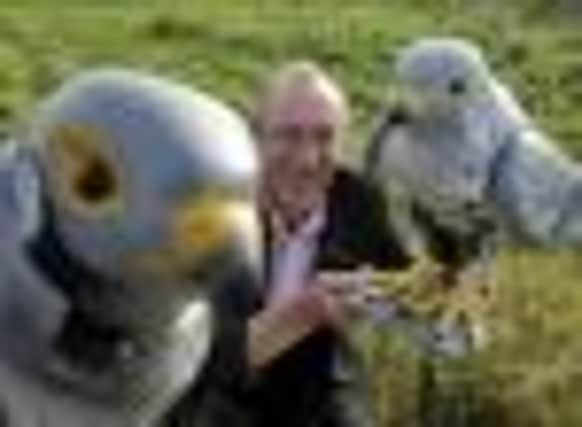Robot falcons to rid Waverley of pigeon pests


Robop, which makes robots shaped like peregrine falcons, is installing two of its devices at the station, which is plagued with pigeons and seagulls.
Network Rail has ordered two of the model birds of prey, which cost nearly £3,500 each, to scare them away by fooling them into thinking that Robop is a real predator.
Advertisement
Hide AdAdvertisement
Hide AdThe robots have already been used at sites including the All England Tennis Club in Wimbledon, Caterpillar’s vehicle factory at Peterlee in County Durham and Alwyn Court, a historic apartment building in New York.
Robop has been called into the station to help protect the giant new roof installed by contractor Balfour Beatty.
Weighing more than 1,000 tonnes, the 34,000 square metre roof consists of 24,700 panes of glass and is designed to let more light into the station.
Kevin Priestley, managing director of Irvine-based NPI, which builds the robots for Robop, said: “Birds can cause a great deal of mess that can be expensive to clear.”
He said the robotic birds are easy to install and “do not require much maintenance”.
Waverley is the UK’s second-largest station by area, with only London Victoria taking up more ground. Some 25 million passengers use Waverley each year.
The robotic birds – which were invented by entrepreneurs Alan Davie and Bob McIntyre – flap their wings, shake their heads and produce four different peregrine falcon calls.
Robop has exported its technology to 15 countries and lists B&Q, Johnson & Johnson and Schlumberger among its clients.
Advertisement
Hide AdAdvertisement
Hide AdIts birds have been deployed at a chicken farm in the Highlands, Schipol airport in Amsterdam and a salt mine in New York State.
The company, which is based at Macmerry in East Lothian, was founded in 2001 and sold its first robot the following year.
In 2009, the business teamed up with Will Cresswell, an expert on bird behaviour at St Andrews University, to make its falcons act more realistically. St Andrews now receives a royalty payment for each falcon sold.
The partnership between the company and St Andrews University was arranged by Interface, a public body that aims to help small businesses to access academic expertise.
Siobhán Jordan, director of Interface, said: “It’s really encouraging to see the continued success of business ideas brought about by the collaboration between business and academia.
“Interface has introduced more than 1,400 companies like Robop to academic partners in Scotland to date, and the benefits to these businesses and the wider Scottish economy are clear.”